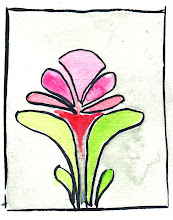Let me leave today's word to Hal - New Englander, Printmaker, fan of J. J. Lankes:
***
Here are three poems my Maine author Robert P. Tristram Coffin, from
his collection "Saltwater Farm" (illustrated by JJ Lankes
incidentally). The poems have a regionalist or New England
sensibility about them, with references to working the earth, and a
keen perception of nature, much like in Lankes woodcuts.
THE FOG
He knew how Roman legions looked, for he
Had seen the Maine coast fogs march in from the sea
For many years now, in the August days.
They came in mighty columns up the bays,
Tawny and gray and silver in the sun;
They trampled out the seaports one by one,
The islands and the woods, with their high hosts,
And pushed the world back inland from the coasts.
This little house was lost, these hills and dells,
Cows in pasture faded into bells,
The world around a man closed in and in
Till nowhere was ten paces from this chin.
A man drew up and halted with a start
To be so close to his beating heart
And left so to himself and wholly blind
To everything but what was in his mind.
This was the peril and the comfort, too,
A man who lived in such a region knew;
On any Summer's day, within an hour,
He might be blind and naked to a power
So vast, it might have come from stars unmade,
Undreamt of, even, making him afraid,
So mightier than the night that he could guess
How life was but a name for loneliness.
FOOTSTEPS OF FLAME
His father had explained it all to him;
How rockweed in November at the rim
Of ebb tide showed a phosphorescent mark
When you stepped upon it in the dark.
That was all the story. Just the same,
The boy still thought the footprints were still a flame,
And he believed their feet must give out light,
Which made them show up plain there in the night.
You could not get around it. There they lay,
Footmarks you could see as plain as day
Coming up from behind as they walked,
The big ones and the little. While they talked
Of things of everyday, the steps came on,
There must be something to them so they shone.
It was simplest to believe 'twas so
And not trust things a small boy could not know.
That was the beginning. But it spread,
Until it got into the small boy's head
That always when his father was along
Something burned inside them that was strong
As sunlight, fierce and hot and clean,
Something very lovely though unseen,
And sometimes he had hard work no to stare
As though a wing had stirred his father's hair.
TAKING THE TURN
The best time on a farm is when
Sleep lies on the most of men.
It is when you rise and go
By starlight, through the dew or snow,
With your lantern by your side,
To see that all is right outside.
You take your turn to see all the housed;
The cows with velvet eyeballs drowsed.
The hens grown gentle as the dove,
Bunched all together in their love.
The utter peace of sleeping pigs,
Strange lacework of the maple twigs.
The fairy world that spiders spin
Along the corners of the bin.
The house's gable high with night,
Familiar things made strange by light.
Undulant beauty in a plow,
A pitchfork's shadow on the mow.
Wings out of homely things that soar
When your lanterns on the floor.
The shadow that a staple throws,
Hay chaff like an airy rose.
All is gentle, slow, and sure,
Peace behind each fastened door.
All is quiet, hunger done,
Peace beyond light of the sun.
Subscribe to:
Post Comments (Atom)

No comments:
Post a Comment